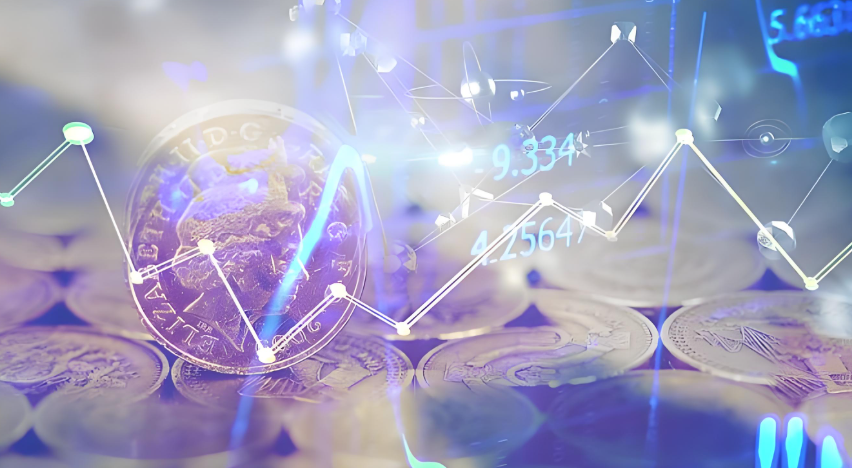Korea’s Unrest Fuels Economic Fears
Advertisements
In recent developments, South Korea finds itself navigating turbulent waters in both its political and economic landscapes. The Finance Minister of South Korea addressed the National Assembly, expressing significant concern regarding escalating economic downturn threats. This comes on the heels of a chaotic announcement by President Yoon Suk-yeol, which saw a failsafe "state of emergency" declared, sparking immediate market volatility and raising fears about the future stability of the nation’s economy.
Finance Minister Choi Sang-mok articulated a unified message: "The risks of downward economic movement are increasingly prominent." His comments were an earnest reflection of the sentiments shared by economists and market watchers alike. The instability within the political arena has begun to resonate through the financial markets, correspondingly impacting people's perceptions of the South Korean economy. To counteract a shaking currency landscape, officials are leaning on consistent market operations, something that is not uncommon in other nations during times of economic strain.
The gravity of the situation can be better understood when noting that South Korea's central bank, in an unexpected move last month, lowered interest rates in response to mounting concerns over slowing growth. The dramatic decision highlights the pressure on central monetary policy amid political instabilities that seemingly overshadow underlying economic fundamentals.
The tone of the financial ecosystem shifted drastically after Yoon’s impromptu "state of emergency" announcement. Despite a subsequent repeal by the National Assembly, the damage to public confidence and stock market performance tugged the currency down to levels not seen since the global financial crisis in 2009. Furthermore, analysts are voicing apprehensions that potential political fracturing could hinder vital fiscal forecasts from being effectively passed before Yoon potentially exits the political stage, further crippling an already flagging economic outlook.

Economists from prominent firms such as Nomura have sounded the alarm. Park Jung-woo, a market economist at Nomura, indicated that in a worst-case scenario, political uncertainty could stretch for months, which may inflict about a 0.2% negative impact on South Korea's economic growth. He noted, “In that scenario, the Bank of Korea will have to take additional measures to stimulate the economy.” Such views underline the precarious balance the government must maintain with its fiscal policy frameworks and the ramifications of political events on economic performance.
The central bank's recent decision to ease monetary policy comes after what it views as a significant victory against inflation. This pivot involved two consecutive cuts to the benchmark interest rate in an attempt to invigorate economic growth. Current forecasts indicate that economic growth for the year is likely at 2.2%, with projections for 2025 dipping further to 1.9%. This is a notable downward revision from previously stated estimates, prompting the Bank of Korea to announce that a refreshed economic outlook will come next February.
Following the president's announcement of a state of emergency, Bank of Korea Governor Lee Chang-yong pledged support to the Ministry of Finance, promising to provide "unlimited liquidity" if deemed necessary. Minister Choi mentioned his surprise and strong opposition upon learning of the intended emergency measures during a Cabinet meeting, reiterating that the approach taken was far from conventional.
In a separate yet related initiative, the Bank of Korea underscored its commitment to stabilizing market conditions by purchasing government and corporate bonds valued at approximately 14.1 trillion won through repurchase agreements last week. Such actions are aimed squarely at cushioning the financial environment amidst escalating market tensions.
Additionally, collaborative discussions took place between Minister Choi and U.S. Treasury Secretary Janet Yellen regarding ongoing economic developments. The two agreed upon the importance of a robust economic relationship grounded in shared democratic values, showcasing an international dimension of the situation that could impact bilateral relations in various sectors.
After the sizeable drop in the won’s value last week, the currency has shown signs of recovery, suggesting that the most severe phases of its depreciation might be behind. The South Korean government typically intervenes in the currency markets to alleviate sharp fluctuations instead of standing by until larger, disruptive interventions become necessary. This pattern of action has contributed to placing South Korea on the U.S. Treasury's currency monitoring list due to its frequent currency market interventions.
As of recent reports, various government entities—including the central bank—have been actively trading in the foreign exchange markets, resulting in a net selling total of approximately 9.15 billion USD across the preceding four quarters. Interestingly, in one quarter, authorities were net buyers of USD, highlighting a strategic response to changing market conditions.
In conclusion, South Korea stands at a pivotal juncture, grappling with a mix of political instability and economic uncertainty. The coming months will be critical as the government and central bank work to stabilize both the currency and the wider economy, illustrating the delicate interplay between governance, policy, and market performance. The situation demands careful monitoring, both domestically and internationally, as stakeholders look to navigate these choppy waters.
Leave a comment: